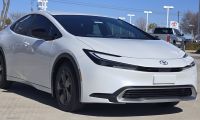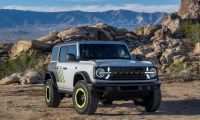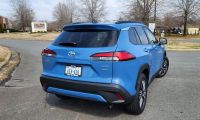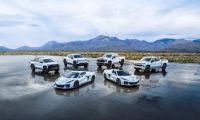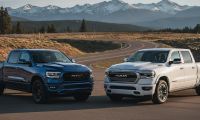With the end of tax exemption measures in January 2023, some voices critical of the transition to electromobility predicted a significant drop in actual EV market participation. But despite the fact that sales suffered slightly, these forecasts have not been fulfilled; as a matter of fact, in May 2023 BEVs (Battery Electric Vehicles) took over a staggering 80.7% of the market. Of a total of 13,342 registered cars, 10,773 were pure electric, 15.4% more than last year. Interestingly, plug-in hybrid sales also continue to decline: in May 2021, 3,221 units were registered, in 2022 this figure fell to 1,375 units, and in 2023 it stood at 703 units. PHEVs (Plug-in Hybrid Electric Vehicles) retain a share of only 5.3%.
The best-selling model in Norway was, to no one's surprise, the Tesla Model Y, which accounted for 2,691 units. The Volkswagen ID.4 and BMW iX1 completed the podium with 738 and 594 units respectively. After them comes the Toyota RAV4 (580 units), the Volvo XC40 (539 units), the Skoda Enyaq (387 units), the Audi Q4 e-tron (386 units) and Ford Mustang Mach-E (372 units). One of the surprises has been the Volkswagen “ID Buzz”, of which 308 units of its tourism version and 174 units of the commercial version have been dispatched. This translates into a total of 482 units, which shows the great reception that the German model is achieving.

Norway plans to ban the sale of cars with internal combustion engines, including hybrids and plug-in hybrids by the year 2025. Therefore, it will be a decade ahead of the European Union, which has set the date at 2035. And it is that the Electric car market share in the EU was 12.1% in 2022, a far cry from Norwegian figures. For this reason, many Chinese brands have begun their European expansion in this market (BYD or XPeng, among others), since it constitutes an ideal testing ground before embarking on the conquest of the old continent.
We can perfectly say that the success of electric vehicles in Norway is a prime example for other countries to follow. The rapid adoption of EVs and the decline in sales of traditional and plug-in hybrid vehicles demonstrate the potential for a greener automotive future. Some factors that have contributed to this growth in the electric vehicle market are :
* A strong commitment from the Norwegian government to promote cleaner transportation solutions through incentives and regulations.
* The development of an extensive charging infrastructure, making it more convenient for EV owners to charge their vehicles.
* Public awareness campaigns that educate citizens about the benefits of electric vehicles, both environmentally and economically.
* Collaborative efforts from various stakeholders, including automotive manufacturers and local businesses, to foster a supportive ecosystem for EV adoption.

The Tesla Model Y performance in Norway is a reflection of the growing demand for high-quality electric vehicles that cater to various consumer needs. Its impressive sales not only affirm Tesla's position as a leading EV manufacturer but also encourage other brands to step up their game in the zero-emission vehicle segment.
As the world faces pressing environmental concerns and the need to transition to more sustainable energy sources, the success of electric vehicles in Norway serves as a testament to the effectiveness of these strategic measures. Other countries and regions can learn from Norway's experience in promoting electromobility and start taking steps towards a cleaner and more sustainable transportation system.
Source: ofv.no
All images courtesy of Tesla Inc.
Nico Caballero specializes in Data Analytics and solar energy. He also holds a Diploma in Electric Cars from Delft University of Technology in the Netherlands, and enjoys doing research about Tesla and EV batteries. He can be reached at @NicoTorqueNews on Twitter. Nico covers Tesla and electric vehicle latest happenings at Torque News.
Set Torque News as Preferred Source on Google







